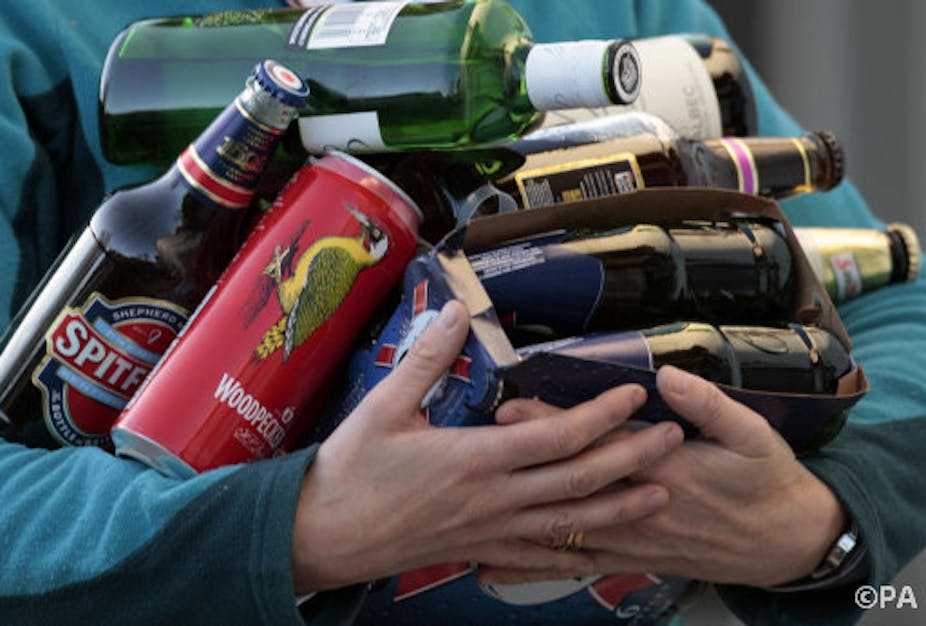The evidence is in. Sales of alcohol in Scotland have decreased since the 2010 Alcohol Act was introduced.
The act restricted the display and promotion of alcohol to a single area of any store. It banned multi-buy discounts, stopping supermarkets and other off-licence retailers from providing better deals for bigger purchases. This aimed to deter consumers from buying more than they intended.
Our research evaluated the impact that the Alcohol Act had on sales in the year following its introduction. The report shows that the introduction of the act was associated with a reduction of alcohol sales in Scotland.
A 4% decrease in wine sales was particularly significant. In the 12 months prior to the ban, wine comprised one-third of the market share of total sales. There was also an 8.5% drop in sales of pre-mixers such as alcopops, although these account for a small proportion of total sales.
Similar changes were not observed in England and Wales over the same time period, where the legislation does not apply. The impacts of other factors, such as changes in alcohol affordability, were taken into account. This suggests that the changes witnessed in Scotland were as a direct result of the act rather than anything else.
Despite the ban on multi-buy promotions, straight discounting of products from the list price remains legal in Scotland. Retailers have responded to the ban by enhancing other promotions such as price cuts and in-store displays. Since the ban, 50% of sales in Scotland have been on promotion. Although the act intended to reduce alcohol consumption levels, a large proportion of alcohol is still sold at relatively low prices. The scale of alcohol consumption and related harms remains high.
Scientific evidence suggests that policies increasing alcohol tax and price are an effective way to reduce alcohol consumption and harm. A recent review and a pooled analysis make this case.
The Minimum Pricing Act proposed in June 2012 will, if implemented, prevent the sale of cheap, high strength alcohol. The Scottish government has proposed that the initial level of minimum unit pricing will be 50 pence per unit, to be reviewed every two years.
Researchers at the University of Sheffield claim this would reduce national consumption by 5.7% annually. Each year this would prevent 318 alcohol-related deaths, 6,500 alcohol-related hospitalisations and 3,500 crimes. Minimum unit pricing has been shown to target the heaviest drinkers as they tend to buy the cheapest alcohol.
The fact that minimum unit pricing has not actually been implemented in Scotland has meant that the pioneering Sheffield research has faced some criticism. However, recent research from Canada, where the policy has been introduced, supports the assertion that it reduces consumption and harm. In British Columbia a 10% increase in minimum prices was associated with a 9% reduction in alcohol-related hospital admissions and a 32% drop in alcohol-related deaths.
There is good evidence to suggest that the positive effects of the Alcohol Act would be enhanced by minimum unit pricing. Such evidence-based policies will provide a fair and effective way of changing Scotland’s relationship with alcohol for the better, and could serve as an example for the rest of the UK.

